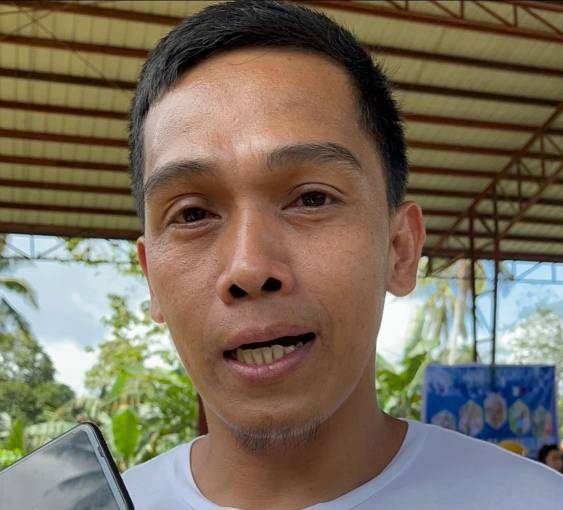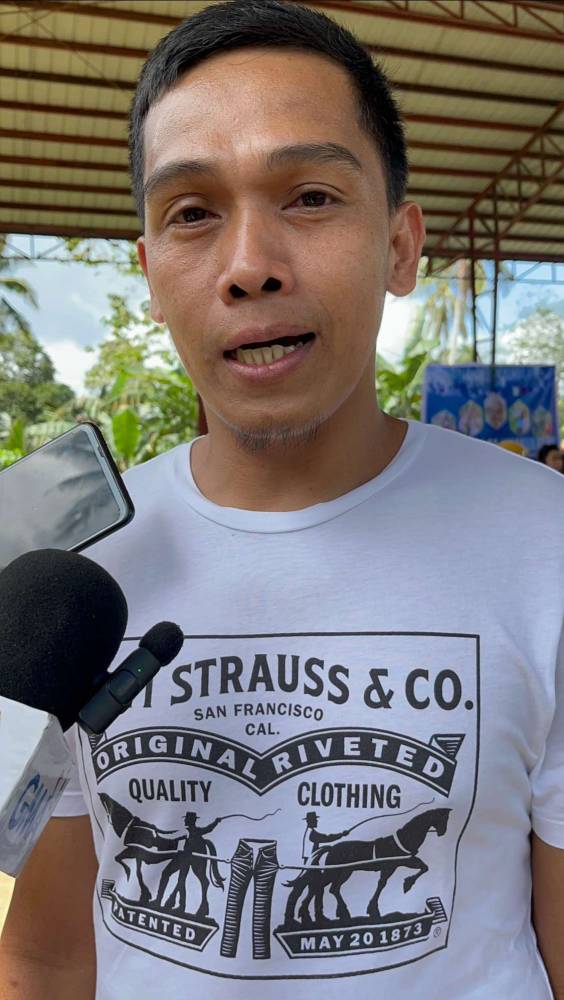Basilan’s dreaded Abu subleader now helps children of war

ZAMBOANGA CITY — After 18 years of engaging government troops in a hide-and-seek in the jungle of Basilan, Nurhassan Jamiri, who used to be a notorious subleader of the bandit group Abu Sayyaf, surrendered and settled down in his home village of Limbo Upas, Tipo-Tipo town of Basilan, where he won as village chair in the last barangay and Sangguniang Kabataan elections.
Jamiri currently helps the Save the Children Foundation heal the children of war and bring them back to school but he is still being hounded by the stigma of his past.
“It was a struggle to adjust as the public saw you as a bad person,” said Jamiri, 43, who surrendered on March 28, 2018.
But he enjoyed the trust of Limbo Upas’ villagers, who elected him as their barangay chairman in October last year. “Since then, our place has enjoyed relative peace,” he said.
He was only 11 years old when he joined the Moro Islamic Liberation Front (MILF) that, he said, was forced on him by his elder. When he turned 20, he got attracted to the leadership of brothers Abdurajak Abubakar and Khadaffy Janjalani, which prompted him to join the Abu Sayyaf, an Islamic militant-turned-bandit group.
Notoriety
Jamiri was tagged as among those involved in the 2011 kidnapping of Australian Warren Rodwell, who was freed in Pagadian City in Zamboanga del Sur after 15 months in captivity. But his notoriety started as early as 2001 when he allegedly led the bombing of Fort Pilar in Zamboanga City, which left a Marine sentinel dead and 18 devotees wounded.

He was also involved in the June 2, 2001 siege of Lamitan City in Basilan that left six soldiers dead and 41 others wounded.
On July 10, 2007, his group also ambushed a Philippine Marine contingent in Al-Barka, Basilan, and killed 14 soldiers.
He was also tagged as behind the kidnapping in Basilan of humanitarian mission workers Esperancita Hupida and Milet Mendoza on Sept. 15, 2008. Both were freed over a month later.
No wonder that when he surrendered and settled down, he could still feel the stigma of being a member of the bandit group.
“I was hunted down, I was wanted. The people here were affected because of me. Many left the place. Women, men and children went into hiding. So I decided to surrender to bring peace back to our people,” Jamiri said in an interview early this month.
No man’s land
Barangay Limbo-Upas has 1,305 population with 202 households, according to the 2020 census. But 20 years ago, or in 2000, heavy presence of lawless armed groups prompted the government to declare the place as a no man’s land, causing its population to drop to less than a hundred households.
Children in the village had to go to Tipo-Tipo town proper for their primary education, as the military had targeted Limbo-Upas and its nearby village of Macalang for its operations against the Abu Sayyaf.
But in 2014, when Abu Sayyaf bandits started to surrender, the situation in the village started to change.
Jamiri also worked with the Save the Children of Basilan to bring education and trauma healing among children that survived wars in the province.
Chance for redemption
Retired military colonel Ariel Querubin, once a recipient of the Medal of Valor who spent four years in jail when he led the failed coup against the administration of former President Gloria Arroyo, said not all so-called enemies of the state were necessarily all that bad.
He cited his experience with Tuburan Mayor Dorie Kalahal, once a wanted leader of the Moro National Liberation Front (MNLF) he was asked to pursue in Basilan, and Abdullah Goldiano Makapaar bin Sabbar, also known as Commander Bravo of the MILF who is now a member of the Bangsamoro Transition Authority (BTA) Parliament.
Kalahal, was charged with rebellion in 1993 following the MNLF’s encounter with the Philippine Marines in Barangay Langong of Basilan’s Hadji Mohammad Ajul (formerly Tuburan), where 21 Marine troops were killed. He was able to secure an amnesty under the administration of former President Joseph Estrada in 2000 and ran for mayor of Tuburan in 2001.
Querubin said he was “very mad’ with Kalahal when first met him in 1994. “My heart ached because we lost so many people then but look at Basilan now and the town where Kalahal is,” Querubin said.
When people in Kauswagan, Lanao del Sur, had declared him as an adopted son, Querubin remembered he was pursuing Commander Bravo. “Now, he is a member of the (BTA) parliament and the community where he came from is peaceful and developing,” he said.
















